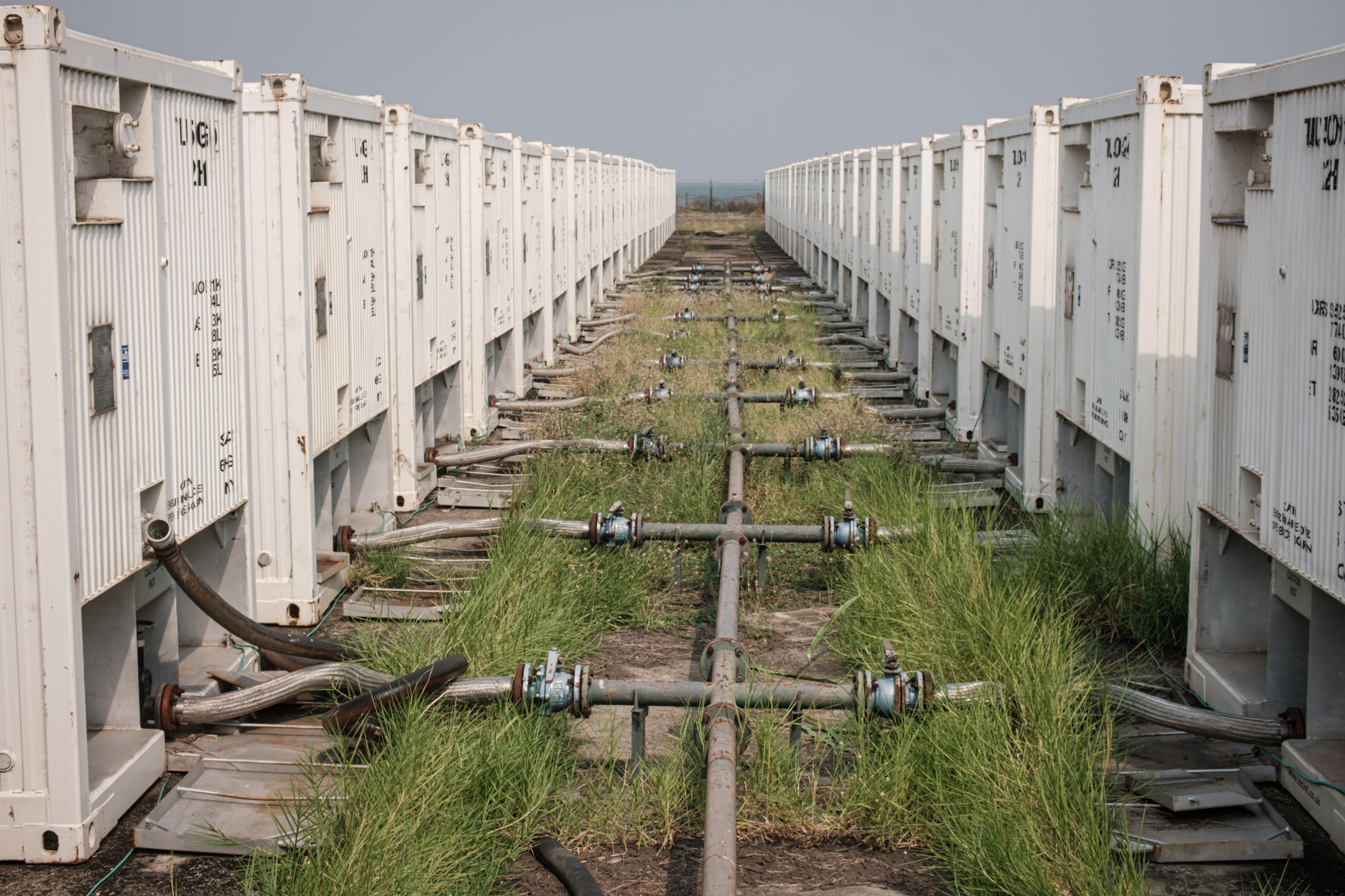Prime
Oil sector registers improved ratings in new global index

Crude oil containers in Kasemene 1 in Bullisa District. The oil sector is gearing for the development phase - construction of required infrastructure to cost between $10b and $15b to start commercial production by 2025. PHOTO | FILE
What you need to know:
- Mining. Meanwhile, the mining sector, assessed for the first time, scored favourably - 55 points - compared to 49 points scored by the oil and gas sector. While the scores of both sectors placed in the “weak” performance band, differences remain at the sub-component level.
- The mining sector once earned the country millions of dollars from the 1920s when it began to the early 1970s when political and economic chaos set in, and eventually grinded to a halt in the 1980s.
Petroleum and mining scored 49 per cent and 55 per cent, respectively, in the latest resource governance index by New York-based Natural Resource Governance Institute (NRGI), a non-profit entity that advocates for good governance in natural resources.
The score, according to the index released last week , was propelled by among others improvements in revenue transparency, corporate governance of state-owned Uganda National Oil Company, and reporting on the performance of the Petroleum Fund.
“Despite the positive upward trend, challenges remain, placing governance of Uganda’s oil and gas sector in the “weak” performance band,” the index report reads in part.
The ratings, the index noted, received a “failing” score, hampered by absence of a cadaster, lack of beneficial ownership, rules on public disclosures and government’s failure to disclose contracts with oil companies - French TotalEnergies EP, and China’s CNOOC.
Other factors included governance of local impact placed in the “poor” performance band, with access to environmental and social impact assessments limited by the requirement to submit an application and payment of a fee in order to access information.
Also, although numerical fiscal rules are documented in a public policy, these are not enshrined in law and there is no adherence requirement by government.
Similarly, despite improvements to governance of the Petroleum Fund, laws regarding deposits, withdrawals and investment rules scored as “poor” and “failing.”
The 49 per cent score is, however, an improvement by five points from the 44 per cent scored in the last index score in 2017.
The index, according to NRGI, is an evidence-based tool that allows stakeholders such as governments, civil society actors, private companies and citizens to understand how their countries perform in terms of resource governance.
Mr Paul Bagabo, the NRGI country researcher, said the index is a starting point that highlights what is going good and not, but noted the index is “not a useful way of comparing natural resources countries.
Speaking at the release of the index last week, Mr Moses Kaggwa, the Finance Ministry acting director for Economic Affairs, echoed government’s commitment to continue “enhancing” governance in management of natural resources, revealing that recommendations of the 2017 index had been integrated as part resources management in National Development III.
The oil sector is gearing for the development phase - construction of required infrastructure to cost between $10b and $15b to start commercial production by 2025.
According to the index, aspects of oil sector scored variously. Value realisation, the measure of the quality of governance regarding allocating extraction rights, exploration, production, environmental protection, revenue collection and state-owned enterprises, scored 49 per cent from 44 per cent in 2017.
“As Uganda looks to become a new producer, solid governance of its oil and gas operations will become increasingly crucial, ” the report reads in part.
In terms of governance around national budgeting, government has disclosed both national debt levels and the national budget, but has not yet passed a law setting a numerical fiscal rule. As such the government withdraws at leisure from the Petroleum Fund, established in March 2015 by the Public Finance Management Act, as a kitty for oil revenues for financing the budget and saving/investment for the future generations through appropriations to the Petroleum Revenue Investment Reserve.
Meanwhile, the mining sector, assessed for the first time index, scored favourably—55 points, compared with 49 points scored by the oil and gas sector. While the scores of both sectors placed in the “weak” performance band, differences remain at the subcomponent level.
The mining sector once earned the country millions of dollars from the 1920s when it began to the early 1970s when political and economic chaos set in, and eventually grinded to a halt in the 1980s. By 1965 mineral exports accounted for 14 per cent of Uganda’s export earnings behind coffee and cotton. Today, formal mining accounts for a meagre 0.5 percent of total Gross Domestic Product and most minerals remain un[der]exploited, and despite various interventions over the past years.




